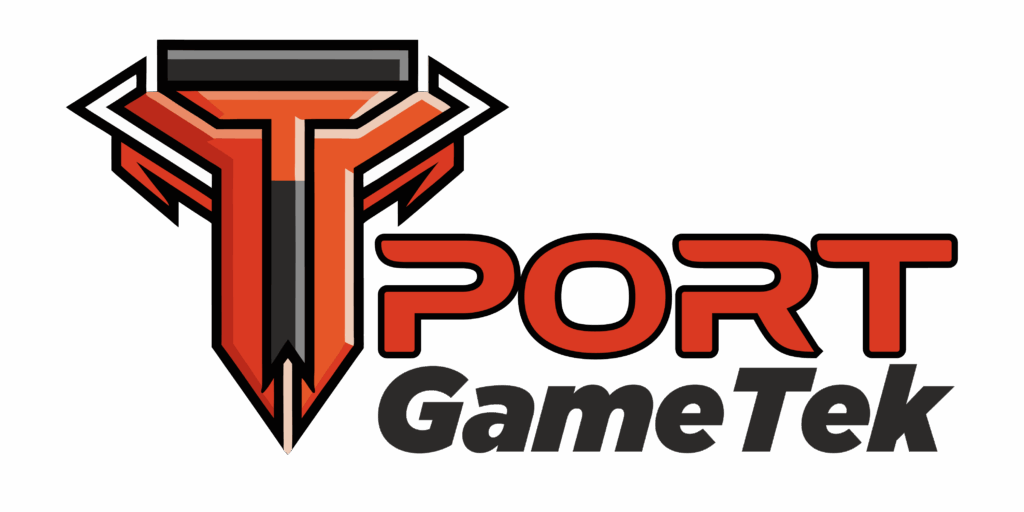You’re asking which game engine should i use tportgametek, and honestly, that’s the question that stops most developers before they even start.
Here’s the problem: there are dozens of engines out there. Each one claims to be the best. And if you pick wrong, you could waste months learning tools that won’t work for what you’re trying to build.
I’ve tested most of the major engines. I’ve seen what works and what doesn’t.
This guide gives you clear recommendations based on what you’re actually making. Not some generic list. Real answers for real projects.
We focus on three things that matter: how easy the engine is to use, whether you can get help when you’re stuck, and whether the engine has actually shipped successful games.
You’ll learn which engines work best for different types of games and skill levels. No fluff about features you’ll never use.
Just the information you need to pick an engine and start building.
First, Ask the Right Questions: How to Choose Your Engine
You can’t pick a game engine until you know what you’re building.
I see people skip this step all the time. They jump straight to Unity or Unreal because that’s what everyone talks about. Then three months later they’re frustrated because the engine doesn’t fit what they actually need.
So let’s start with the questions that matter.
What’s your project scope?
Are you making a 2D pixel art platformer or a 3D open world game? A simple mobile puzzle game or something with complex physics systems? The answer changes everything.
What’s your skill level?
Be honest here. If you’ve never coded before, an engine that requires C++ knowledge will stop you cold. But if you’re comfortable with programming, visual scripting might feel limiting.
Where do you want people to play your game?
PC only? Mobile devices? Consoles? The web? Some engines handle cross-platform better than others. And some don’t support certain platforms at all.
What can you spend?
Most engines are free to start. But some take a cut of your revenue once you launch. Others charge monthly subscriptions. You need to know what you’re signing up for.
How much support do you need?
When you get stuck (and you will), where will you turn? Good documentation matters. Active forums matter. Tutorial availability matters.
These questions form the backbone of which game engine should i use tportgametek recommendations. Answer them first and you’ll save yourself months of headaches.
Because picking an engine isn’t about what’s popular. It’s about what fits your actual project.
The Industry Standard: Unity – The Versatile Workhorse
You’ve probably played a Unity game today without even realizing it.
Seriously. From the mobile game you tapped through on your lunch break to that indie darling everyone won’t shut up about, Unity’s fingerprints are everywhere.
Now, some developers will tell you Unity is too mainstream. That real game devs use something more “pure” or whatever. They’ll say it’s bloated or that everyone uses the same assets.
Here’s my take on that.
Who cares? If you’re trying to actually finish a game instead of just talking about making one someday, Unity gets you there.
I recommend Unity for most people asking [which game engine should i use tportgametek](insert your actual link here). Not because it’s perfect. It’s not. But because it works and it won’t fight you every step of the way.
Think of it this way. Unity is like the Honda Civic of game engines. Not the flashiest choice, but it’ll get you where you need to go without breaking down.
What Unity Does Best
Mobile games are Unity’s bread and butter. iOS, Android, whatever. It just works. You write your code once and ship it everywhere.
The engine handles 2D games beautifully. It also does 3D without making you want to throw your computer out the window (most days anyway).
VR and AR? Unity was early to that party and it shows.
Why It Actually Matters
The Asset Store is wild. Need a character controller? Someone made it. Want particle effects? There are hundreds. You can prototype an entire game in a weekend using pre-made stuff.
And the community. Oh man. Whatever problem you’re having, someone else already solved it and posted a tutorial on YouTube.
Unity uses C#, which is about as friendly as programming languages get. If you’ve coded anything before, you’ll pick it up fast.
The Track Record Speaks
Hollow Knight. That gorgeous metroidvania that made everyone fall in love with bugs? Unity.
Genshin Impact pulls in millions every month. Also Unity.
From tiny one-person projects to massive commercial hits, Unity ships games that people actually play.
Look, I’m not saying Unity is the only answer. But if you’re stuck wondering where to start, this is probably it.
The Powerhouse: Unreal Engine for Unmatched Visual Fidelity

You want your game to look stunning.
Not just good. I mean the kind of visuals that make players stop and stare at a sunset or the way light bounces off water.
That’s where Unreal Engine comes in.
Now, some developers will tell you that chasing graphics is a waste of time. They’ll say gameplay matters more than how pretty things look. And honestly, they have a point. A gorgeous game with terrible mechanics won’t keep anyone playing.
But here’s what that argument misses.
You don’t have to choose between great visuals and great gameplay. Unreal Engine lets you have both.
I’ve tested this engine against others, and when it comes to pure visual power, nothing else comes close. If you’re wondering which game engine should i use tportgametek, and graphics are your priority, this is your answer.
Here’s what makes Unreal different.
The Blueprint visual scripting system means you can build complex game logic without writing a single line of code. (Though if you know C++, you can go even deeper.)
Then there’s Lumen and Nanite. These aren’t just buzzwords. Lumen handles real-time lighting that actually looks real. Nanite lets you import film-quality assets without tanking your frame rate.
Compare that to other engines where you’re constantly optimizing and cutting corners just to hit 60fps.
Look at what this engine powers. Fortnite runs on it. So does Gears of War. Epic Games backs it, which means you’re getting regular updates and solid support.
Best for: High-fidelity 3D games, cinematic experiences, anything where visual quality can’t be compromised.
The learning curve is steeper than some alternatives. But if you want AAA-quality graphics, that’s the trade-off.
For more on choosing the right tools for your project, check out tportgametek gaming updates by theportablegamer.
The Open-Source Champion: Godot Engine – Free and Flexible
Let me tell you about Godot.
Some developers will argue that you need a big commercial engine to make serious games. They’ll say open-source tools are fine for hobbyists but not for real projects.
I disagree.
Godot has become my go-to recommendation for anyone who wants complete control without the baggage of licensing fees or revenue cuts. And before you think it’s just for small indie projects, you should know that studios are shipping commercial titles with it right now.
Here’s what makes it different.
The engine is completely free and open-source. No strings attached. You build a game that makes a million dollars? You keep every cent. No 5% cut. No subscription fees. Nothing.
The scene and node system is probably the cleanest way to structure a game I’ve seen. Everything in your game is a node. Nodes combine into scenes. Scenes can be nested inside other scenes. It sounds simple because it is, and that simplicity means you spend less time fighting your tools.
GDScript is the language Godot uses by default. If you’ve ever touched Python, you’ll feel right at home. It’s designed specifically for game development, so common tasks that take ten lines in other languages often take two or three here.
Now, Godot really shines for 2D games. The 2D tools are built from the ground up (not just a 3D engine pretending to do 2D). For lightweight 3D projects, it works great too. Can it handle massive open-world games with photorealistic graphics? Not yet. But for most projects, it’s more than capable.
The community around Godot keeps growing. When you hit a problem, you’ll find someone who’s solved it. The forums are active and people actually help each other instead of just telling you to read the docs.
One thing I really appreciate is how fast it runs. The engine itself is lightweight, which means shorter load times and quicker iteration. You make a change, hit play, and see results in seconds. That might not sound like much until you’ve worked in an engine where testing a small tweak takes two minutes every time.
If you’re still wondering which game engine should i use tportgametek, Godot deserves serious consideration. Especially if you’re working on 2D projects or want to learn game development without worrying about costs down the road.
It’s not perfect for everything. But for what it does well, it does really well. And the fact that it won’t cost you anything to find out makes it worth trying.
Specialized Tools for Specific Jobs
Some engines are built for one thing and they do it really well.
GameMaker Studio is your best bet if you’re focused on 2D games. Period.
It’s fast. It’s streamlined. And it has a track record that speaks for itself.
Undertale and Hyper Light Drifter both came from GameMaker. These aren’t small indie experiments. They’re games that made serious money and built devoted fanbases.
The learning curve is gentler than Unity or Unreal. You can get a prototype running in days instead of weeks.
Now if you’re dreaming of a classic story-driven RPG, RPG Maker is worth a look.
It’s purpose-built for that genre. You won’t write much code (which might be exactly what you want). The toolset is designed around turn-based combat, dialogue trees, and quest systems.
Is it limiting? Sure. But sometimes limits help you finish what you start.
When you’re trying to figure out which game engine should i use tportgametek, think about your actual project first. Not the project you might do someday. The one you’re doing now.
A specialized tool beats a general one when you know exactly what you’re building.
The Most Reliable Engine is the One You’ll Actually Use
We’ve covered the big three: Unity for versatility, Unreal for graphical power, and Godot for open-source freedom.
I get it. You’re worried about picking the wrong engine and wasting months of your life.
But here’s the truth: The best engine is the one that fits your project and your skills. There’s no universal winner. Just the right choice for you right now.
which game engine should i use tportgametek gets this question constantly. And my answer is always the same.
Stop overthinking it.
Pick the engine that sounds most exciting for your current idea. Download it today. Build a small prototype this week.
You’ll learn more in three days of actual development than three months of research and comparison videos.
Action beats analysis every time. Your first project doesn’t need to be perfect. It needs to exist.
So what are you waiting for? Homepage. Tportgametek Game Trends From Theportablegamer.





